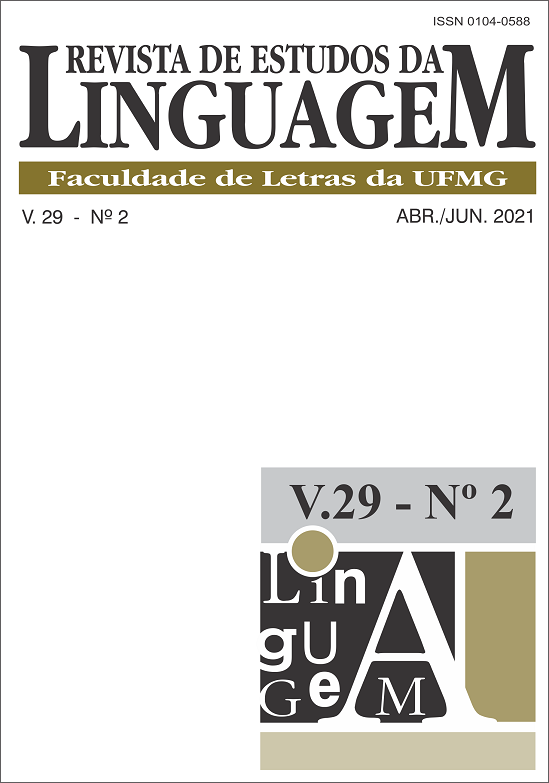O carpinteiro e a madeira
a constituição de corpora jurídicos em perspectiva etnometodológica
DOI:
https://doi.org/10.17851/2237-2083.29.2.673-709Palavras-chave:
etnometodologia, corpora, argumentação, tribunal, transcrição de dados oraisResumo
Este artigo propõe-se a relatar uma experiência de pesquisa com corpora complexos, a fim de compartilhar o processo e procedimentos de elaboração de um banco de dados instituído precipuamente para pesquisa doutoral, empreendida na Université Lumière Lyon II/França, no laboratório ICAR, cuja especialidade é, justamente, o trabalho com a análise de corpora em diversos níveis de extensão e complexidade. A partir de uma perspectiva etnometodológica (MONDADA, 2008; OCHS, SCHEGLOFF, THOMPSON, 1996; SCHEGLOFF, 1999; TRAVERS, 2001; TRAVERSO, 2007), numa imersão em território jurídico (CORNU, 2005; DUPRET, 2006; LATOUR, 2004), a pesquisa ora relatada buscou descrever e analisar como os magistrados realizam a gestão do desacordo, em situações, muitas vezes, acentuadamente erísticas. Sem nos distanciarmos dos estudos teóricos acerca dos preceitos de metodologia de trabalhos acadêmicos em geral (GIL, 2002; MOTTA-ROTH; HENDGES, 2010; SALOMON, 2014), constituímos um banco de dados balizados pela noção de situação argumentativa, uma noção da retórica antiga retomada por Plantin (1993, 1995, 1996, 2016), a qual põe em destaque situações de conflito de opiniões, em contextos argumentativos vários. A partir da exaustiva e intricada transcrição dupla dos dados (BAUDE, 2006; BLANCHE-BENVENISTE, 2008; KERBRAT-ORECCHIONI, 2006), a pesquisa culminou na confirmação de que o discurso jurídico está longe de ser frio e asséptico e que as interações argumentativas naquele contexto se analisadas no calor das deliberações têm muito a nos ensinar sobre o argumentar em contexto institucional. Isso pode ser conferido em quatro capítulos analíticos cujo planejamento e execução ora trazemos a lume, a partir do estudo do direito em ação, isto é, em situação de interação, por meio de deliberações de magistrados em processos de danos morais, num tribunal brasileiro de Segunda Instância.





